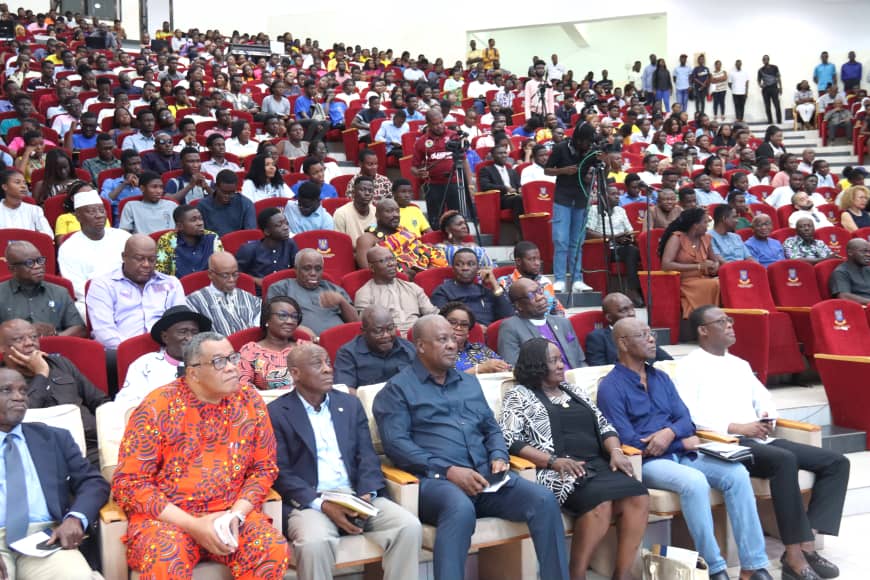By Francis Ntow/Jibril Abdul Mumuni
Accra, July 4, GNA – Two graduate students of the Economics Department of the University of Ghana have received GHS60,000 from the K.B Amissah-Arthur Foundation.
The money from the Foundation of the late Vice President, Paa Kwesi Bekoe Amissah-Arthur, is an educational assistance to the students in memory of his passion for higher education and research.
Ms Deborah Annan, a Master of Philosophy student in Economics, received GHS20,000, while Ms Josephine Baako-Amponsah, a Doctoral candidate in Economics received GHS40,000.
The award was presented by the children of the late Statesman at a commemorative forum in his honour in Accra on Friday.
Professor Ebo Turkson, an Associate Professor of Economics at the University, explained that the award was line with the late Mr Amissah-Arthur’s interest in economic research and academics.
The forum featured a keynote address delivered by Dr Kingsley Yeboah Amoako, the Founder of the African Centre for Economic Transformation (ACET).
There was also a panel discussion, which had personalities from academia, industry and policy makers, who shared insight on “Economic policy making in Ghana: Lessons learnt and the way forward”.
During the discussion, panel members said it was important for Ghana to have an all-encompassing national consensus on long-term policy measures that would ensure growth and transformation of the economy.
They recommended that the consensus should culminate into a compact that would be binding on every government.
In so doing, the National Development Planning Commission (NDPC), should be strengthened and be made to ensure that governments implemented policies, programmes and projects in a continuous and consistent way.
Dr Agyapomaa Gyeke-Darko, a Senior Lecturer at the University of Ghana Business School (UGBS), said that the development plan built through consensus should put more emphasis on growing the productive sectors of the economy.
She expressed worry about Ghana’s growth not translating into the transformation that the people needed, and asked: “Why are we still where we are?”
She said there should be more investment in labour intensive sources of the economy, and consistency in policy implementation, which was backed by a long-term development plan.
Contributing to the discussion, Mr Kofi Fynn, the Managing Director of Petra Trust, advised that more attention be focused on the microeconomy, with development of individuals and businesses being at the centre.
He called on private entities to engage more with regulatory authorities and the political class to fashion out measures that would thrive business profitability and for consumers to benefit from affordable prices of goods and services.
Philip Abradu-Otoo, Director of Research at the Bank of Ghana (BoG), also said that consensus building was critical in economic development, and encouraged both sides of the political divide to collaborate to do things that would inure to the benefit of all.

Mr Emmanuel Cudjoe, an Economic Policy Management professional, also said consensus building, consistency and continuity in policy implementation would make Ghana a transformative economy.
He said the citizens had a role to play in that regard, and challenged them to demand accountability from policy makers and government through democratic means.
The K. B. Amissah-Arthur Economic Forum was graced by various personalities, including former President, John Dramani Mahama, some current and former ministers of state, and members of the National Democratic Congress.
Some past Governors of the Bank of Ghana, which the late Vice President once headed, lecturers, staff and student from the Department of Economics, as well as family members of the late Amissah-Arthur, including his wife and children were at the forum.
GNA